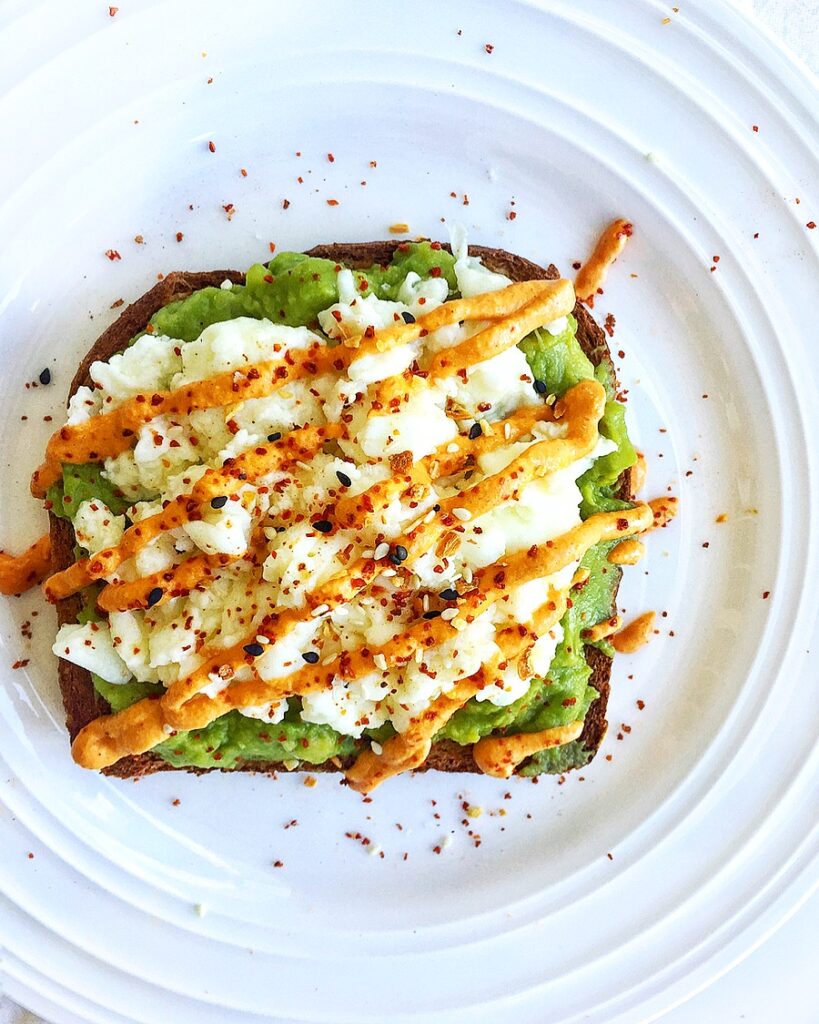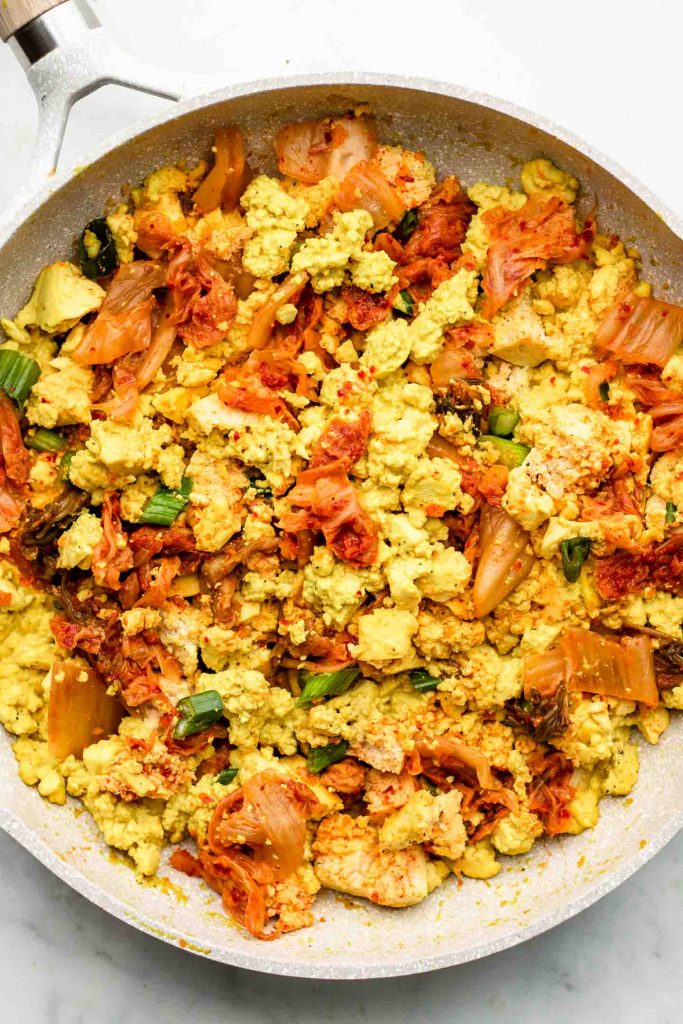
Protein is currently all the rage and for good reason. Protein, especially for runners, provide so much value when it comes to performance. Yet, protein tends to be the more diffcult macronutrient to start your day with
If you find yourself scrambling for breakfast ideas that are both high in protein and easy to prepare? You’re not alone. As someone who values nutrition but prefers to spend minimal time in the kitchen, I’ve discovered a few recipes that are minimal prep and cook but are packed full of protein.
High-protein meals that are simple to prepare and perfect for those of us who’d rather not navigate complicated recipes. In this post, I’ll share 5 high-protein breakfast ideas sourced from expert food bloggers. These meals are designed to fuel your day, support your fitness goals, and save you time—all without the need to become a master chef.
Benefits of Having a High Protein Breakfast
Starting your day with a high-protein breakfast is more than just a trend among fitness enthusiasts; it’s a science-backed strategy to kickstart your morning with sustained energy, improved health, and enhanced mental focus. Here’s why incorporating protein-rich foods into your first meal of the day can make a significant difference in how you feel and perform:
- Sustained Energy (Xiao et al 2022; Jakubowicz et al 2017): Protein is known for its ability to provide a steady source of energy. Unlike high-carbohydrate meals that can lead to spikes and crashes in blood sugar levels, protein helps maintain stable glucose levels throughout the morning. This means you can say goodbye to the mid-morning slump and enjoy consistent energy that lasts until lunch.
- Increased Satiety (Rains et al 2015; Liedy et al 2010; Liedy et al 2011): One of the most celebrated benefits of a high-protein breakfast is its ability to keep you feeling full and satisfied longer. Protein takes more time to digest compared to fats and carbohydrates, which means you’re likely to snack less and avoid unnecessary calories throughout the day.
- Muscle Maintenance and Growth (Morton et al 2018): For active individuals or anyone focused on fitness, protein is essential for repairing and building muscle tissue. A protein-rich breakfast not only supports muscle recovery from your workouts but also primes your muscles for growth. By starting your day with adequate protein, you’re setting the stage for effective muscle maintenance and development. Don’t worry, eating extra protein won’t make you bulky!
- Improved Concentration and Cognitive Function (Coelho-Junior et al 2021): Breakfast is often dubbed the most important meal of the day for good reason. It jump-starts your metabolism and fuels your brain after a night’s fast. Including protein in your breakfast has been linked to better concentration, memory, and cognitive performance, as it provides the necessary amino acids your brain needs to function optimally.
- Health Benefits (Naghshi et al 2020; Pfeiffer et al 2020) : Beyond the immediate benefits of energy and satiety, high-protein breakfasts have been associated with various long-term health advantages. These include improved blood lipid profiles, reduced risk of type 2 diabetes, and lower blood pressure. Incorporating protein-rich foods into your morning routine is not just a step towards a healthier day but a leap towards a healthier life.
Making protein a cornerstone of your morning meal sets a positive tone for the day ahead. Whether your goal is to manage your weight, support muscle health, enhance mental focus, or simply maintain a balanced diet, a high-protein breakfast is a powerful tool in your nutritional arsenal. As we explore easy and delicious ways to incorporate more protein into your morning routine, remember that the key to a successful diet is variety and balance. Let’s move on to discover five simple high-protein breakfast ideas that even the most culinary-averse can master.
Tips For a Timing High-Protein Breakfast for Runners
For runners, especially those with early morning training schedules, nutrition plays a crucial role in optimizing performance and recovery. While high-protein breakfasts are a cornerstone of runners nutrition, the timing of this meal relative to training sessions can significantly impact its benefits. Here are some tailored tips and considerations for athletes looking to maximize the advantages of their high-protein morning meal:
1. Post-Training Protein Intake:
If you’re an athlete who trains first thing in the morning, consider timing your high-protein breakfast for after your workout session. Consuming protein post-exercise is vital for muscle recovery and growth. It provides the necessary amino acids for repairing muscle fibers damaged during training and can help replenish energy stores. A breakfast rich in high-quality protein after your workout can enhance recovery and prepare your body for the next training session.
2. Pre-Training Light Snack Option:
While a substantial high-protein meal is recommended post-workout, having a light snack before your training can help maintain energy levels without weighing you down. Opt for something easily digestible and low in fat; a banana, a small serving of yogurt, or a slice of toast with jam can provide a quick energy boost.
3. Balance Your Plate:
While protein is the star of your breakfast, don’t neglect the importance of carbohydrates and fats. Carbohydrates are essential for replenishing glycogen stores after a morning workout, and healthy fats provide long-lasting energy and are vital for absorbing certain nutrients. Consider including whole grains, fruits, and sources of healthy fats like avocados or nuts in your breakfast to ensure a balanced meal.
4. Personalize Your Protein:
Different runners have different dietary needs based on their lifestyle, goals, and personal health. Customize your protein sources and amounts to what works best for you. While animal products are high in protein, plant-based options like lentils, tofu, and quinoa can also offer substantial protein and are excellent for those following a vegetarian or vegan diet.
5. Consider Protein Quality:
Not all proteins are created equal. Aim for high-quality protein sources that contain all the essential amino acids your body needs. Eggs, Greek yogurt, cottage cheese, lean meats, and whey or plant-based protein powders are excellent options for building a high-protein breakfast that supports athletic performance and recovery. Plant-based proteins are of high-quality as well, they just may require more thought and forsight to ensure you are getting enough protein at each meal.
Incorporating these tips into your morning routine can help athletes not only maximize the benefits of a high-protein breakfast but also ensure that their overall nutrition strategy supports their training and performance goals. Remember, a thoughtful approach to nutrition is as important as the training itself when it comes to achieving athletic excellence.
High Protein Breakfast Ideas
1. Make Ahead Breakfast Burritos: Made by the wonderful Meghann Featherstone who is also a sports dietitian dedicated to runners. This meal prep is easy and delicious. You can prep 5 for the week or 15 to carry you out over the month f you need to.

2. Protein Oatmeal Muffins: This has been a personal favourite of mine! These homemade muffins are made with eggs, fruit, oats, and protein powder making for a great grab-and-go protein option. Not only do they pack 15g of protein per muffin, but also 4g of fibre! Pop in the microwave for 1 minute, grab 2 and you are on your way to start the day! Check out this recipe from Ally’s Kitchen.

3. Cottage cheese and eggs: Eggs alone do not contain large amounts of protein (6g per egg). Add in another side of protein such as cottage cheese can help create a 25-30g protein breakfast without much effort. Check out the 8 different variations of cottage cheese eggs by Elizbeth from Hello Spoonful.

- Kimchi Tofu Scramble: For those who prefer plant-based meals, a tofu scramble is a great way to add protein in your breakfast with a side of kimchi for added gut health benefits. I found this recipe on a quick Google search a few months ago and this is the recipe I stick to. You can add or remove items to make it suit your preferences.

- Chocolate Peanut Butter Portein Shake: If you don’t like to chew much food in the morning, try a high-protein smoothie. Here is one of my favourites: who doesn’t love chocolate and peanut butter? However, if you are someone who prefers fruity recipes, You can make your own and add in either a protein powder or Greek yogurt to boost that protein in the morning.

In wrapping up, it’s clear that incorporating high-protein meals into your breakfast routine is great to kickstart your day with energy, focus, and satiety. The beauty of the five easy high-protein breakfast ideas we’ve explored lies in their simplicity and efficiency, perfectly catering to those of us who prioritize health but prefer to spend less time in the kitchen.
Remember, a nutritious morning meal sets the tone for the day ahead, and with these quick meal prep solutions, you’re well on your way to enjoying the myriad benefits of a protein-packed start. Whether you’re meal prepping for the week or looking for a quick fix on a busy morning, these breakfast ideas are designed to fit seamlessly into your lifestyle, proving that healthy eating doesn’t have to be complicated.
I encourage you to experiment with these recipes, tweak them to your liking, and perhaps even discover the joy of creating simple yet satisfying meals. Here’s to mornings filled with energy, nourishment, and a little extra time to enjoy the start of your day.
Thinking about working with a sports dietitian?

I’d love to help you optimize your nutrient that reflects your goals, physical activity, and lifestyle so you can feel your best. You can check out my different program options or schedule a 15-minute consultation call.
Stay fueled friends!
References
- Xiao K, Furutani A, Sasaki H, Takahashi M, Shibata S. Effect of a High Protein Diet at Breakfast on Postprandial Glucose Level at Dinner Time in Healthy Adults. Nutrients. 2022 Dec 24;15(1):85. doi: 10.3390/nu15010085. PMID: 36615743; PMCID: PMC9824806.
- Jakubowicz D, Wainstein J, Landau Z, Ahren B, Barnea M, Bar-Dayan Y, Froy O. High-energy breakfast based on whey protein reduces body weight, postprandial glycemia and HbA1C in Type 2 diabetes. J Nutr Biochem. 2017 Nov;49:1-7. doi: 10.1016/j.jnutbio.2017.07.005. Epub 2017 Jul 21. PMID: 28863364.
- Rains TM, Leidy HJ, Sanoshy KD, Lawless AL, Maki KC. A randomized, controlled, crossover trial to assess the acute appetitive and metabolic effects of sausage and egg-based convenience breakfast meals in overweight premenopausal women. Nutr J. 2015 Feb 10;14:17. doi: 10.1186/s12937-015-0002-7. PMID: 25889354; PMCID: PMC4334852.
- Leidy HJ, Racki EM. The addition of a protein-rich breakfast and its effects on acute appetite control and food intake in ‘breakfast-skipping’ adolescents. Int J Obes (Lond). 2010 Jul;34(7):1125-33. doi: 10.1038/ijo.2010.3. Epub 2010 Feb 2. PMID: 20125103; PMCID: PMC4263815.
- Leidy HJ, Lepping RJ, Savage CR, Harris CT. Neural responses to visual food stimuli after a normal vs. higher protein breakfast in breakfast-skipping teens: a pilot fMRI study. Obesity (Silver Spring). 2011 Oct;19(10):2019-25. doi: 10.1038/oby.2011.108. Epub 2011 May 5. PMID: 21546927; PMCID: PMC4034051.
- Morton RW, Murphy KT, McKellar SR, Schoenfeld BJ, Henselmans M, Helms E, Aragon AA, Devries MC, Banfield L, Krieger JW, Phillips SM. A systematic review, meta-analysis and meta-regression of the effect of protein supplementation on resistance training-induced gains in muscle mass and strength in healthy adults. Br J Sports Med. 2018 Mar;52(6):376-384. doi: 10.1136/bjsports-2017-097608. Epub 2017 Jul 11. Erratum in: Br J Sports Med. 2020 Oct;54(19):e7. PMID: 28698222; PMCID: PMC5867436.
- Coelho-Júnior HJ, Calvani R, Landi F, Picca A, Marzetti E. Protein Intake and Cognitive Function in Older Adults: A Systematic Review and Meta-Analysis. Nutr Metab Insights. 2021 Jun 4;14:11786388211022373. doi: 10.1177/11786388211022373. PMID: 34158801; PMCID: PMC8182191.
- Naghshi S, Sadeghi O, Willett WC, Esmaillzadeh A. Dietary intake of total, animal, and plant proteins and risk of all cause, cardiovascular, and cancer mortality: systematic review and dose-response meta-analysis of prospective cohort studies. BMJ. 2020 Jul 22;370:m2412. doi: 10.1136/bmj.m2412. PMID: 32699048; PMCID: PMC7374797.
- https://pubmed.ncbi.nlm.nih.gov/32019211/
